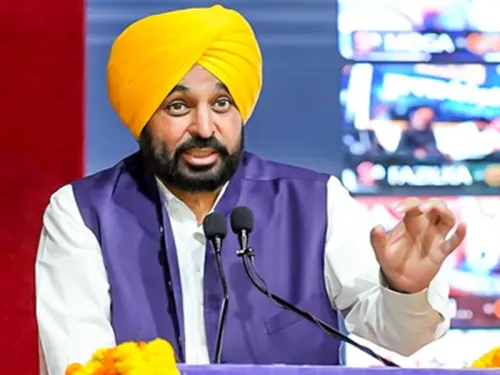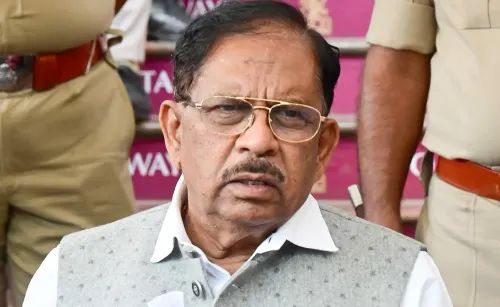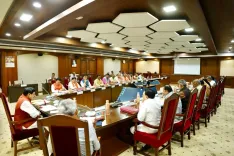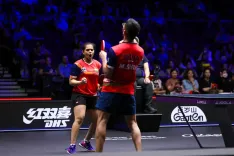Supreme Court Allows Four Weeks for Centre's Response to PIL on Women's Safety Guidelines
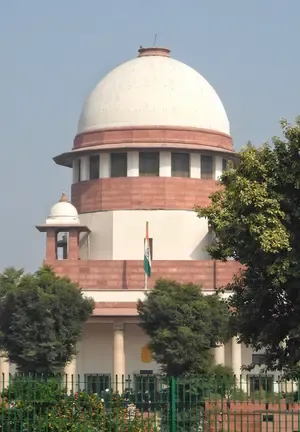
Synopsis
Key Takeaways
- The Supreme Court has allowed extra time for the Union government to respond to a PIL on women's safety.
- Justice Surya Kant led the bench emphasizing the need for effective law implementation.
- Concerns raised about rising crimes against women across various states.
- The PIL calls for a comprehensive approach to safety guidelines.
- Engagement with legal experts and stakeholders is encouraged.
New Delhi, March 24 (NationPress) The Supreme Court on Monday provided the Union government with additional time to reply to a public interest litigation (PIL) urging the establishment of comprehensive safety guidelines, reforms, and measures aimed at enhancing the protection of women across the nation.
A bench led by Justice Surya Kant granted an extension of four weeks for the Centre to submit its counter-affidavit after Additional Solicitor General (ASG) Aishwarya Bhati requested more time on behalf of the Union government.
“The learned ASG has requested and is granted four weeks to file the counter affidavit. In the meantime, any suggestions received may be compiled and documented,” the bench, which also included Justice N.K. Singh, stated.
During the proceedings, ASG Bhati noted that the government does not view this PIL as adversarial litigation and intends to present suggestions to the apex court.
On December 16, 2024, the bench led by Justice Surya Kant agreed to consider the plea and requested a response from the Union government regarding the issue.
“We need to investigate where we are faltering in achieving the objectives of punitive and penal law. The issue does not lie with the severity of punishment but rather with other factors,” the apex court remarked.
Senior advocate Mahalakshmi Pavani, representing the Supreme Court Women Lawyers Association, stated that while the Parliament has enacted strict laws, the lack of will, corruption, and negligence among police and administrative entities hinder the prompt and effective implementation of these laws, resulting in no fear among criminals.
The PIL urged the apex court to take judicial notice and establish strict guidelines with a stronger emphasis on timely implementation to avert incidents of sexual violence against women.
Furthermore, it appealed to the court to invoke the doctrine of ‘parens patriae’ to protect the fundamental rights of women, children, and the third gender in the nation, including their right to safety, secure workplaces, adequate sanitation, personal dignity, bodily integrity, and a safe environment.
The petition underscored the disturbing increase in crimes against women, girls, and infants reported nationwide, particularly in Kolkata, Delhi, Bihar, Karnataka, Assam, Rajasthan, Uttarakhand, Uttar Pradesh, Tamil Nadu, Jharkhand, Odisha, Punjab, Maharashtra, Madhya Pradesh, Andhra Pradesh, and other locations, perpetrated by sexual offenders, paedophiles, and sex maniacs.
It referenced the tragic incident of the gang-rape and murder of a 31-year-old junior doctor at RG Kar Medical College and Hospital in Kolkata during the early hours of August 9, 2024, which has deeply shaken the nation and serves as a grim reminder that little has improved since 2012.
“The recent gang-rape of a young lady trainee doctor in Kolkata is just one of many cases that highlight the entrenched incompetence, bureaucratic inefficiency, cowardice of law enforcement, political misconduct, and the appalling state of women's safety in India. From the Nirbhaya Rape Case to Abhaya, the brutality has only escalated into a primal expression against women,” the petition asserted.
It further mentioned that rather than politicizing sensitive matters, the government must focus on the safety of vulnerable citizens and increase funding allocated for the security of women, children, and the third gender.
“The harsh reality is that India only awakens in response to media trials that occur for a few horrific rape cases that shock and traumatize the public,” the petition stated.
The PIL also called for schools to implement gender sensitivity classes along with sex education and regular workshops led by licensed child psychologists and counselors, where boys and girls can learn about biological changes during their teenage years and how to manage these changes in a healthy way.
It emphasized that due to the alarming rise in adolescent-related issues stemming from a lack of accurate knowledge about gender equity, life skills, sexual harassment and abuse, legal marriage ages, juvenile delinquency, etc., the government should be directed to develop and implement nationwide adolescent programs.
In an order issued in January this year, the bench led by Justice Surya Kant instructed the Supreme Court Women Lawyers Association to engage with women lawyers practicing across the country and gather their insights on the challenges faced by women in their respective areas.
“All such suggestions may then be compiled and submitted,” the Supreme Court concluded, scheduling the PIL for a hearing on March 24.

